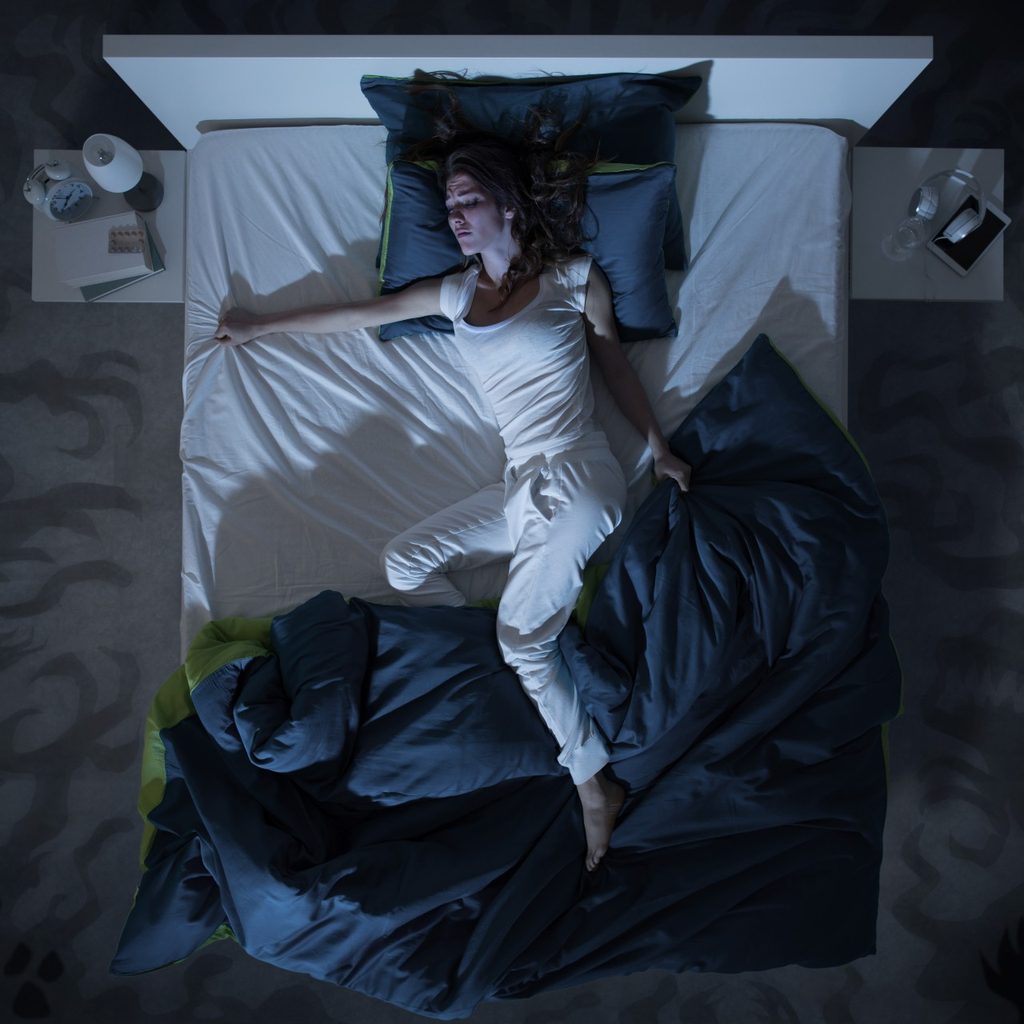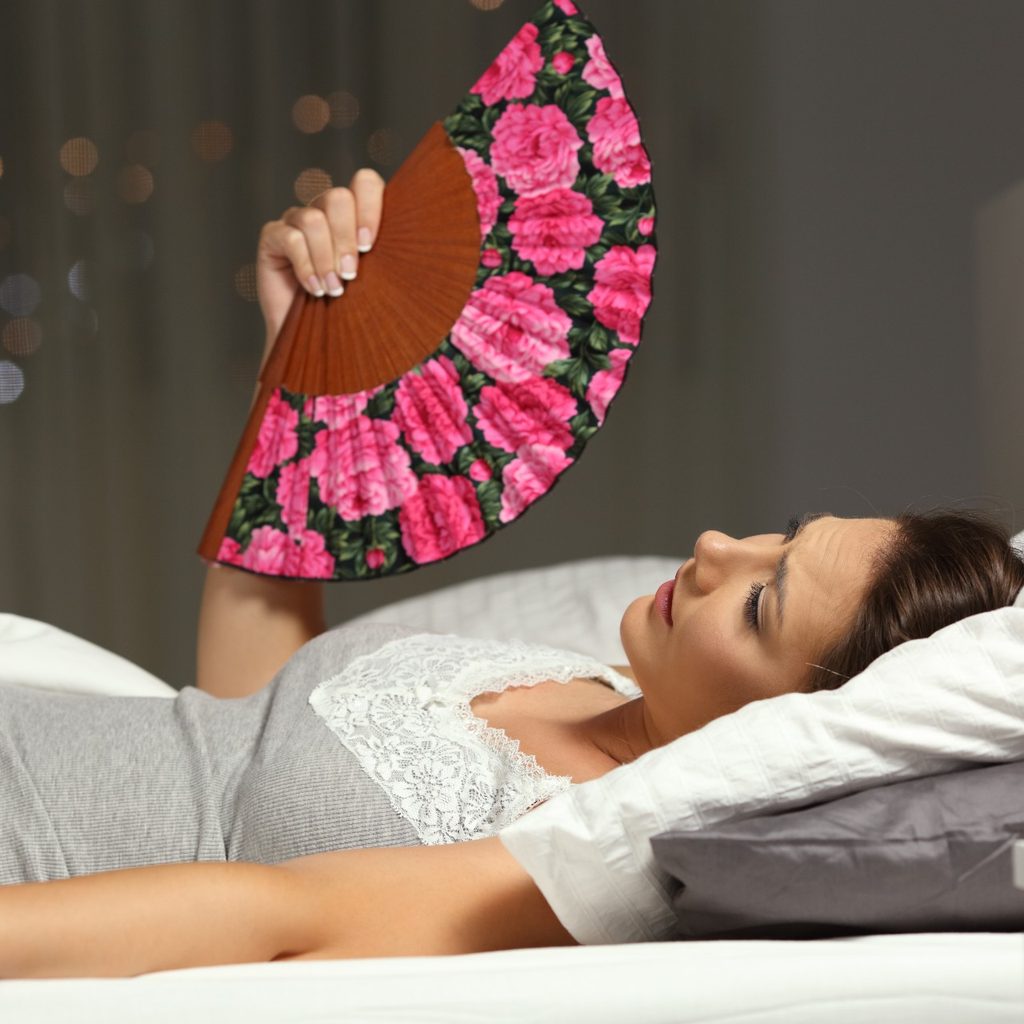Have you ever been lying in bed, late at night, and almost asleep just a few short weeks after delivering your precious little one, and suddenly, you’re INSTANTLY on fire? Your neck begins to feel damp, your forehead starts to drip, and you feel like someone tossed you into an oven. If you’ve been experiencing postpartum night sweats and can’t seem to figure out why, we’ve dug up the scoop on why new moms are plagued with it, and ways to deal with them should they continue to keep you up at night. Moms, especially those dealing with postpartum struggles such as night sweats or fatigue, must support one another even after the baby is born. By doing so, we are encouraging others to speak up, should their situation be much worse than simple night sweats.

What’s the scoop on sweating?
New moms have so much to deal with. Apart from everything their infant may need through the day, moms must also feed and take care of themselves, their spouses/significant others, and possibly other children. Stress levels and fluctuating hormones are mostly to blame for nightly bouts of sweating, thanks to plummeting progesterone and estrogen levels. High levels of those hormones are required to sustain a healthy pregnancy but aren’t needed after the baby is born. The body begins to dump those high hormone levels, causing their levels to plummet. An unfortunate side effect to those plummeting hormone levels is postpartum symptoms such as severe moodiness, sadness, and even depression.
What are postpartum night sweats?
If you aren’t sure what you’re experiencing, or if you are currently pregnant and are curious about what you could be facing down the road, postpartum night sweats can include a combination of symptoms in varying stages of intensity. Those symptoms, paired with lack of sleep from feeding your newborn, overall exhaustion, and learning a new routine, can all play a role in how intensely postpartum night sweats can affect the new mom they plague. A few tell-tale signs of postpartum night sweats are:
- Frequently waking through the night
- Soaking linens and fabrics from sweat
- Becoming intensely hot very quickly
- Flushing of the face, neck, and chest
- Irritability
- Overall tiredness

How to cope
Postpartum night sweats are no fun, but they are also temporary. These episodes should begin to slack off in the few weeks following birth. So not to worry, these pillow-soaking, night-interrupting fits of sleeplessness will only last a short time. That being said, there are few ways to keep yourself cooler at night, which could alleviate the discomfort of waking up to a soaked pillowcase.
- Ventilating the air in your bedroom via fan and/or air conditioning. Keeping the air moving slowly and steadily, albeit at a low speed, will keep the room at a more ambient temperature, allowing you to stay cooler, or adjust to a cooler temperature more quickly.
- Drinking a glass of cold water before bed and keeping it nearby in case of emergency. Thermal tumblers and cups are available just about everywhere these days and make great choices for moms in need to stay hydrated with cold water all day long. Often, these cups keep beverages cold for up to 24 hours.
- Utilizing a cooling towel. These amazing little cloths are a game-changer for night sweat sufferers. Simply dampen the cloth, wring it out, and shake loosely. Apply to the face, neck, chest, or any area that may be overheated and needing to cool down in a hurry. These cloths require no effort to use and stay moist for hours allowing users to keep cool for hours.
A few other suggestions are:
- Avoid caffeine and spicy foods
- Opt for lighter pajamas
- Use moisture-wicking sheets
- Add a towel to your pillowcase or under your body to catch extra moisture
Waking up drenched in sweat in the middle of the night can be uncomfortable and tiring. It can make extra work for an already overly tired mom, so instituting some of these coping strategies could really make the temporary struggle of postpartum night sweats not so debilitating. As always, should your symptoms persist for more than a couple of weeks, seek guidance and advice from your physician. Any kind of disruption of sleep and heavy sweat sessions should be discussed with and assessed by a doctor. This ensures both mom and baby’s overall health.



